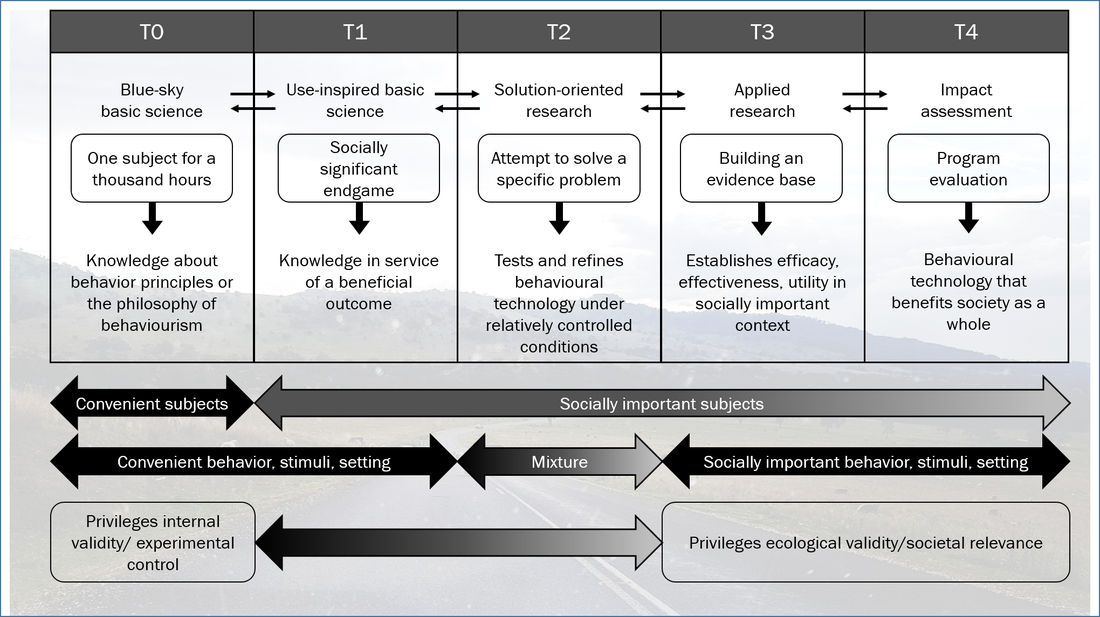A new taxonomy of behavior analysis research.
Behavior analysts have a tendency to label any research that is not pure basic experimental analysis of behavior or pure applied behavior analysis as translational. This is a mischaracterization of translation, the processes of making expedient practice out of good science and vice versa. Those processes necessarily involve pure basic and pure applied research, and not all 'impure' research is translational.
This mischaracterization creates confusion about where impure research belongs, delaying publication for reasons that are unrelated to the scientific merit of the work and perhaps discouraging intellectual and methodological diversity in behavior analysis journals. It's time to think differently about how we classify behavior analysis research.
In our first paper on this topic (Kyonka & Subramaniam, 2018), we describe a new taxonomy of behavior analysis with five tiers. It classifies empirical research based on whether the research subjects, target behavior, study stimuli and research setting are experimentally convenient or socially significant, applying a standard of substitutability to the distinction.
This mischaracterization creates confusion about where impure research belongs, delaying publication for reasons that are unrelated to the scientific merit of the work and perhaps discouraging intellectual and methodological diversity in behavior analysis journals. It's time to think differently about how we classify behavior analysis research.
In our first paper on this topic (Kyonka & Subramaniam, 2018), we describe a new taxonomy of behavior analysis with five tiers. It classifies empirical research based on whether the research subjects, target behavior, study stimuli and research setting are experimentally convenient or socially significant, applying a standard of substitutability to the distinction.


